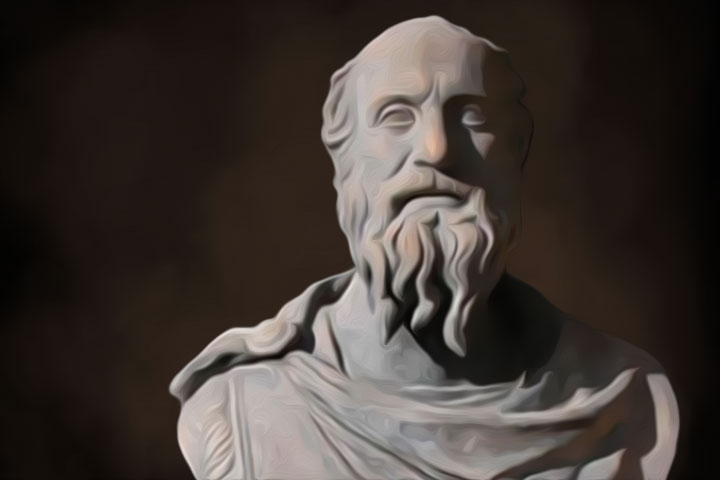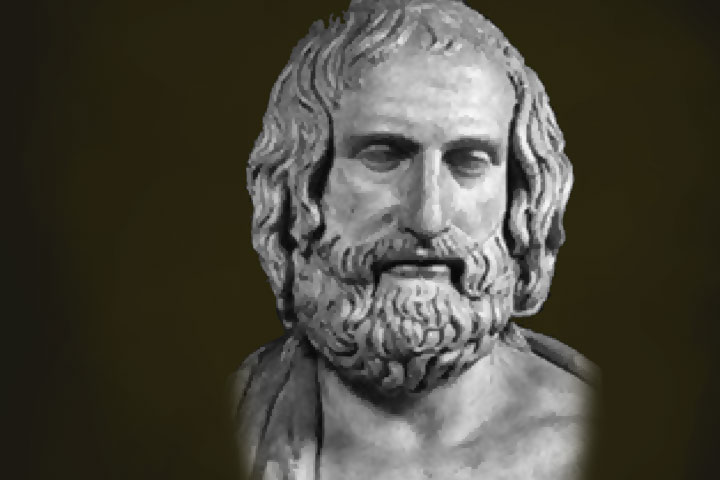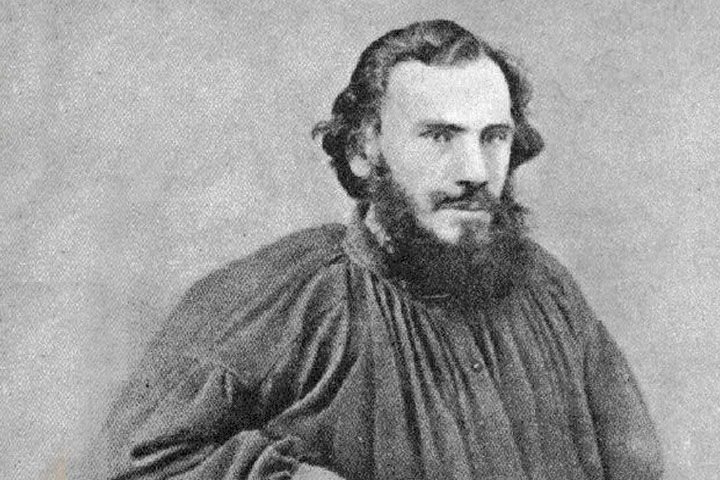
“The reason why a thing is sweet I do not know, but I confess that the fact of sweetness is evident,” is the manner by which Pyrrho of Elis, would describe any object, characteristic or phenomenon. The basis of his thought was simple: That he could confirm beyond doubt only what he experiences. But, he could not explain what caused it.
Every human undergoes such experiences, where we can define actuality without assigning any reason, despite possessing modern technologies. An example is: Why do different individuals prefer certain colours while others find the same repugnant? Hence, we can confirm that a person ‘A’ loves colour green while the individual ‘B’ prefers the blue colour. Yet, we cannot affirm why the two have different choices.
Pyrrho struck a balance between the aspects of anything which are known and unknown to us. He thus founded a new school of thought that was reviled earlier but widely accepted later. This doctrine was called ‘Scepticism’- or, dubiety. Put bluntly, Scepticism implies disbelief in what is unknown or cannot be proved which leads humans to find inner peace or ‘Ataraxia.’

Pyrrho of Elis or simply Pyrrho was born in 360BC in a village called Elis in southern Greece. The area had witnessed massive destruction, pillage and plunder as it lay on the Peloponnesian delta, which was the theatre of a prolonged and sustained war between the Athenians and their archenemies, Sparta and Persia. His parentage remains obscure, hence they were not chronicled. It is however widely accepted, his lineage was not aristocratic and as a boy, Pyrrho studied at a regular school in Elis, learning history, mathematics, religion and arts. His main interest as a young man, was however painting.

Very little is known about Pyrrho’s teens. Records state, he was an excellent painter who spent long hours drawing landscapes and portraits of locals and aristocrats, who rewarded him handsomely. His work was much sought after and was often exhibited at the local gymnasium - a public place - in native Elis.

Pyrrho’s love for painting and the long hours of solitude stimulated his mind, and led him to be a thinker too. He extensively read the works of Democritus of Abdera who was also called ‘The Laughing Thinker.’ He was highly influenced by Democritus’ doctrine which propounded that happiness is the ultimate objective of life and his mockery of accepted Athenian traditions.
His interest in various doctrines of thought grew exponentially, leading Pyrrho to seek tutelage under thinker Bryson of Achaea who was from the Megarian school of thought. The Megarians followed Socratic teachings, which the young Pyrrho imbibed quickly. Later, he studied under Anaxarchus of Abdera. When the Macedonian emperor, Alexander the Great embarked on his conquest of the Orient, Anaxarchus asked Pyrrho to accompany him on the journey, expecting adventure, opulent life and favours from the monarch who hoped to rule the world.

Pyrrho, despite his quest for riches, accompanied Anaxarchus on the conquest hoping to meet and study newer doctrines, especially from distant lands. On the other hand, his teacher Anaxarchus was accompanying Alexander the Great for totally different reasons: wealth and luxury. Pyrrho took time during the journey to meet thinkers of different countries Alexander conquered by force or persuasion while Anaxarchus, notorious for his ignoble bootlicking, would remain with the emperor to shower flattery.
Anaxarchus’ subservient and odious behaviour attracted the censure from generals and nobles accompanying Alexander the Great. They allegorized Anaxarchus as a dependent dog fawning over his master. Pyrrho was not spared either since Anaxarchus’ detractors derogated him as a puppy that follows its parent. Perturbed by such slander, Pyrrho attempted to distinguish himself by distancing from Anaxarchus gradually but continued to do whatever he was asked, albeit with contempt.

When Alexander the Great had conquered large chunks of territory of the Indian sub-continent, Anaxarchus and Pyrrho stayed with the emperor as his cohorts. Wanting to learn about Indian doctrines on life, the duo visited some local mendicants and thinkers, accompanied by an interpreter. The Indian scholars discussed Hindu thoughts on life, the existence of “several worlds” and their detachment from material pleasures in pursuit of an ascetic life and ethereal pleasures instead of opulent living and materialism.
The Greeks and the Indians met daily and exchanged views about the Occidental and Oriental doctrines. An Indian thinker, amused at Anaxarchus and Pyrrho’s superficial reverence towards Alexander the Great asked why the two fawn over a mortal in quest of material pleasures when inalienable riches lay in the celestial world.
Anaxarchus rushed to Alexander the Great to inform him about the existence of “other worlds”. He anticipated the emperor would reward him for the news and would launch an expedition to conquer those. Anaxarchus however lacked any clues about how to reach these “other worlds.” Instead of Alexander rejoicing over this discovery, the emperor wept over his inherent physical and military limitations, quashing all dreams of instant riches Anaxarchus had harboured.
But Pyrrho, utterly disgusted by such denigration of his modesty by another thinker, especially a serene, penniless mendicant, immediately parted ways with his teacher.

The meeting left an indelible mark on Pyrrho who decided to remain in ancient India. He wished to study local doctrines, including those of Gautam Buddha, which were proliferating gradually across northern subcontinent, especially in areas surrounding the Mauryan Empire.
Pyrrho left the Indian subcontinent along with Alexander the Great and his retreating armies but stayed in Persia for some years, studying local doctrines under Persian wise men, the Magi.


Years of studying in India under Hindu and Buddhist scholars and the wise men or Magi of Persia who practiced the Zoroastrian faith, sculpted Pyrrho’s thoughts forever. With slanders faced while accompanying the avaricious Anaxarchus fresh in mind, Pyrrho adopted the Oriental doctrines and led a life of solitude, similar to Indian sages. He renounced all worldly riches and chose to return as pauper to native Elis.
Several historians, in a document titled ‘Pyrrhonism: How the ancient Greeks reinvented Buddhism,” claim, several of Pyrrhonic teachings came from teachings of Gautam Buddha, the founder of that faith. He carried his newfound knowledge back to native Elis.

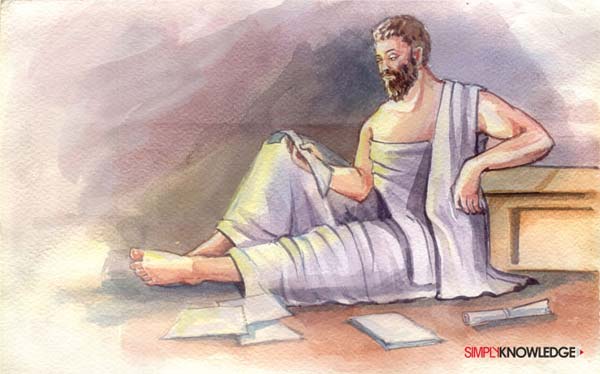
Pyrrho did not immediately expound his school of thought upon return to Elis. Instead, he continued to study and imbibe knowledge from various other doctrines that had emerged during his long absence. He continued to live an austere life, bereft of worldly pleasures.
But the new teachings in ancient Greece had an impact on Pyrrho, who by now, was a matured thinker, revered in his own right, by locals. Pyrrho soon discovered the intrinsic flaws in other contemporary psychologies: Stoicism, which was then popular, claimed its followers possessed true knowledge about everything in the world, as propagated by Zeno of Citium, the father of the Stoic school of thought. The Stoics expounded that good life was related to proper use of logic or reasoning. That logic was true knowledge. Pyrrho, with his Oriental inclinations, was obdurately opposed to such burlesque preaching that claimed to what he believed was an easy way to attain such sacrosanct happiness.
Frustrated at the fallacies of Stoics and other minor schools of thought, Pyrrho evolved his own doctrine, which found spontaneous following: He taught, all humans are aware only about how things appear to individuals. These feelings are devoid of any knowledge about the causes of such appearance. For example, humans can know that some foods are sweet without knowing or seeking to know what imparts that taste. He further said that individual perceptions tend to differ. Hence humans cannot assume that the other individual’s opinions are wrong.

Pyrrho doubted his own perceptions to an extent, he would respond to his pupils with remarks such as “so it seems”, “maybe it appears so,” and words to that effect. In anecdotes about Pyrrho, his pupils would follow the teacher everywhere since he might mistakenly believe that a mountain did not exist and hence, fall off the cliff or get run over by carriages while walking. Despite, his ardent followers fawned over him.
Records also exist about Pyrrho undergoing surgery at the hands of an ancient surgeon sans using the ‘Soporific Sponge’ or a crude anaesthetic that consisted of a sponge dipped in intoxicants that could be inhaled to induce deep sleep or lack of pain and memory in patients. He is acclaimed to have unflinchingly withstood the rigors and excruciating pain of the surgery that required sharp incisions to be made on his body. Some records claim, he mastered the art of withstanding pain from ancient Indian mendicants who wore scant clothing, regardless of the weather and could withstand prolonged periods without food and water

Pyrrho had started from native Elis as a humble painter, interested in psychology. The knowledge he had acquired during his travels, Sceptic doctrine combined with a wide following soon earned him honours in his hometown. Elians exempted him from paying the traditional taxes and made him the high priest at one of the local temples.
Word of Pyrrhonic or Sceptical doctrine also reached Athens: the seat of psychology in ancient Greece. Athenians honoured Pyrrho with an honorary citizenship- a rare accolade for a foreigner. Pyrrho’s statue was erected in Athens in his honour, while he was alive, according to some historians.
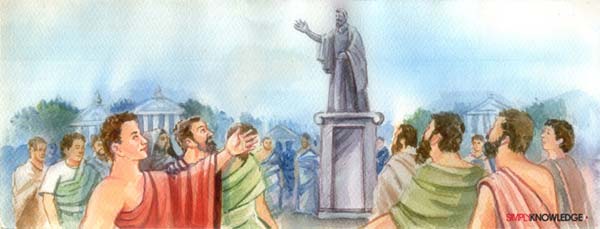

Pyrrho lived an active though simple life till the very end, spending several hours with his pupils and debating his theories. He passed away in 270BC, due to old age. After Pyrrho’s death, his pupils continued to expand and propagate Pyrrhonism to various parts of the Hellenic and Roman empires as well as distant lands. Their byword was ‘Skeptikoi’ meaning dubiety.

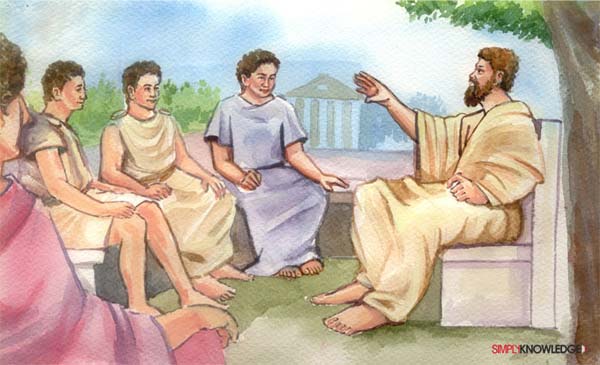
Debunking all accepted theorem about human perceptions and perpetual truth, Pyrrho, during his life taught the concept of “perhaps” and “maybe”. Meaning, the other individual’s viewpoint could perhaps be right while our own may be flawed. He laid great emphasis on dubiety since everything in the world is ephemeral. He said the only way to lead a proper life, is to find inner peace through freedom from worry or apathy towards worldly occurrences and objects.
After his death and due to efforts of his ardent pupils, the concept of a life based on dubiety or ‘Skeptikoi’ gained immense popularity. His students and proponents, who were earlier known as Pyrrhonists, came to be known as Skeptics in Greek. As a result, Pyrrhonism later assumed the name ‘Scepticism.’ To date, Sceptism is acclaimed as the only school of thought from ancient Greece that seamlessly blends Eastern and Western doctrines. The word ‘Sceptic’ now figures in the English dictionary and is used to connote an agnostic or, a person who does not accept or deny the existence of anything.

Modern day psychologists use the word ‘Sceptic’ to describe an individual who is hard to convince, a person who does not oppose or support any cause and is generally apathetic to occurrences, believing these are mere ephemeral transitions.

Most major religions categorize mankind into three main groups: followers, atheists and agnostics. While atheists do not accept the existence of any spiritual or supernatural higher power and are looked upon with disdain within their community, agnostics, on the other hand, are most sought after by preachers.
Agnosticism is a synonym for scepticism: Agnostics do not deny or accept the existence of a God. Hence preachers exert extra efforts to attract such sceptics towards a particular faith, through proselytizing.
Sceptics or agnostics have also borne brunt of religious persecutions worldwide since zealots considered them as enemies and hellions, who could corrupt ardent followers. There are several recorded instances in history where fanatics have killed sceptics for their unique thoughts.
Next Biography








